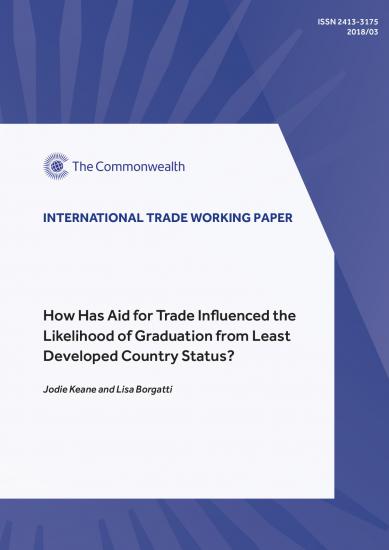How Has Aid for Trade Influenced the Likelihood of Graduation from Least Developed Country Status?
Synopsis
Several econometric techniques with different degrees of sophistication have been used to assess the impact of Aid for Trade (AfT) on trade and other economic performance in recipient countries, especially at the macro level, not all of which have proved conclusive. However, this line of enquiry has not been pursued in relation to whether AfT disbursed to Least Developed Countries (LDCs) has resulted in an increased likelihood of graduation. We therefore explore the relationship between AfT expenditures and the likelihood of graduation from LDC status. Total AfT disbursements per capita to those LDCs unlikely to graduate by 2021 have been constantly higher compared to LDCs likely to graduate by 2021 in recent years. However, disbursements to LDCs likely to graduate have tended to focus on specific sectors, such as communications, business and other services, which have significantly influenced the likelihood of graduation. These sectors have significantly interacted with others, notably agriculture, tourism and mining. These results, related to structural economic transformation within and between sectors, deserve further attention related to stimulating graduation with momentum.

Downloads
Published
Online ISSN
Categories
License

This work is licensed under a Creative Commons Attribution-NonCommercial-NoDerivatives 4.0 International License.

